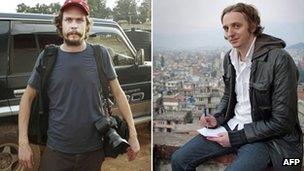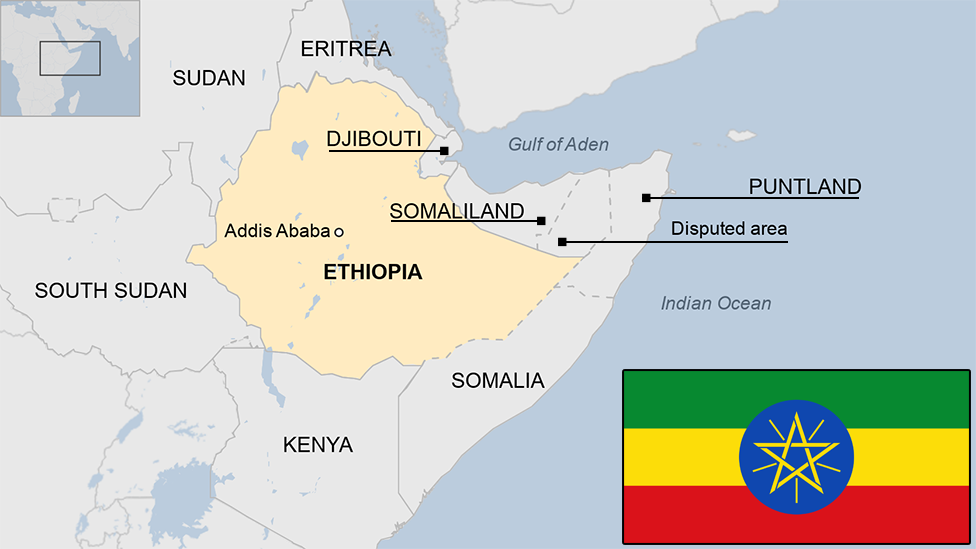Swedes Schibbye and Persson mark year in Ethiopia jail
- Published

Lawyers for Johan Persson (L) and Martin Schibbye (R) said that "prison kills your intellect"
Two Swedish journalists convicted in Ethiopia for entering the country illegally and supporting terrorism have now spent one year in prison.
Martin Schibbye and Johan Persson were captured together with rebels from the Ogaden National Liberation Front.
On the eve of the anniversary of their arrest, the pair said in a statement that the biggest challenge for them now was "psychological".
They have always argued that they were just doing their jobs as journalists.
"It has been the longest year in our lives," photojournalist Person and reporter Schibbye said in the statement conveyed via Swedish diplomats who met them at the prison earlier this week.
"Initially we only focused on eating, keeping warm on the cement floor and not falling ill. Today the challenge is psychological. Prison kills your intellect."
Ethiopian prosecutors had asked for longer sentences of up to 18 years, but the presiding judge decided last year that 11 years was appropriate.
Human rights group Amnesty International has said the journalists were prosecuted for doing "legitimate work".
But Ethiopia's government spokesman Bereket Simon has said the journalists were "red handed" co-operating with "terrorist organisations".
Media reports have suggested that the reporters would not appeal their sentence, but rather apply for clemency.
Closed region
Schibbye and Persson were captured by Ethiopian troops during a clash with ONLF fighters on 1 July.
The men acknowledged during their trial that they had held talks with ONLF leaders in London and Nairobi, before entering Ethiopia from Somalia and meeting about 20 members of the group 40km (25 miles) from the border.
However, they said their contacts with the ONLF were intended to help them to get into a region the Ethiopian authorities would not allow journalists to enter.
They said they wanted to report on the activities of a Swedish oil company, Lundin Petroleum, in the Ogaden.
Both men denied terrorism charges, including claims that they had been given weapons training.
Rebels in the Ogaden region have been fighting for independence since the 1970s and the ONLF has been at the forefront of the fight since it was founded in 1984.
The Ogaden is an ethnic Somali part of Ethiopia.
One ONLF faction has signed a peace deal with the government, but another splinter group has continued to fight the army.
Rights groups accuse Ethiopia of trying to cover up abuses by troops in the region.
- Published2 January 2024
